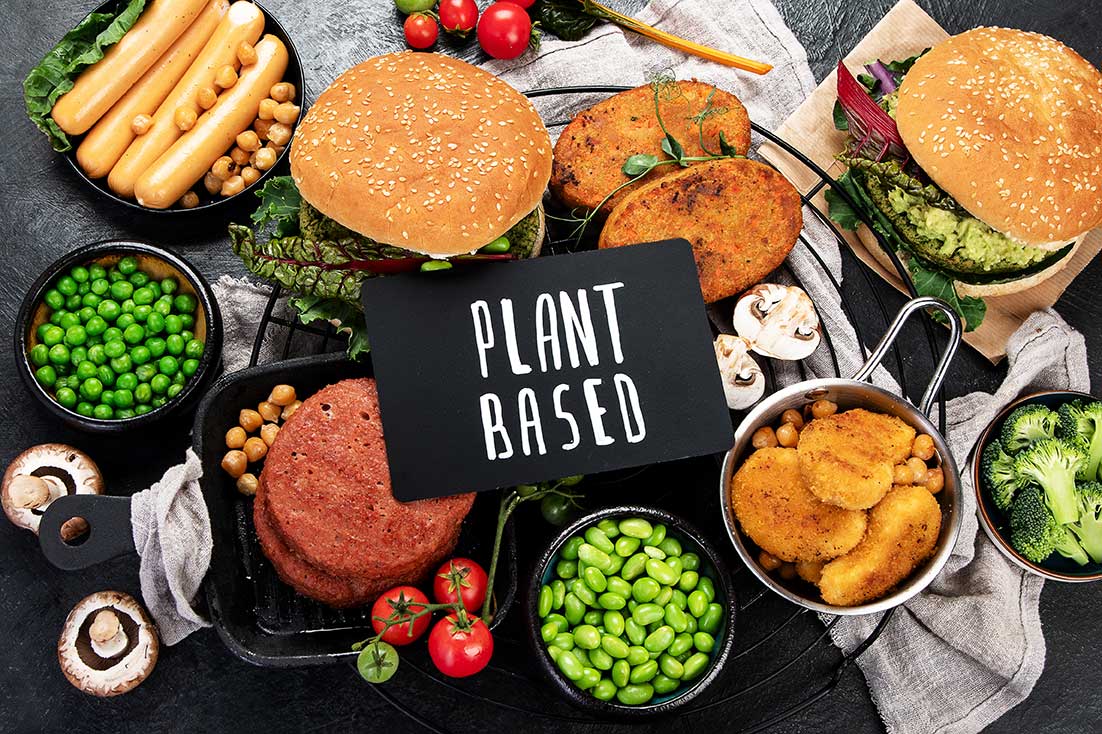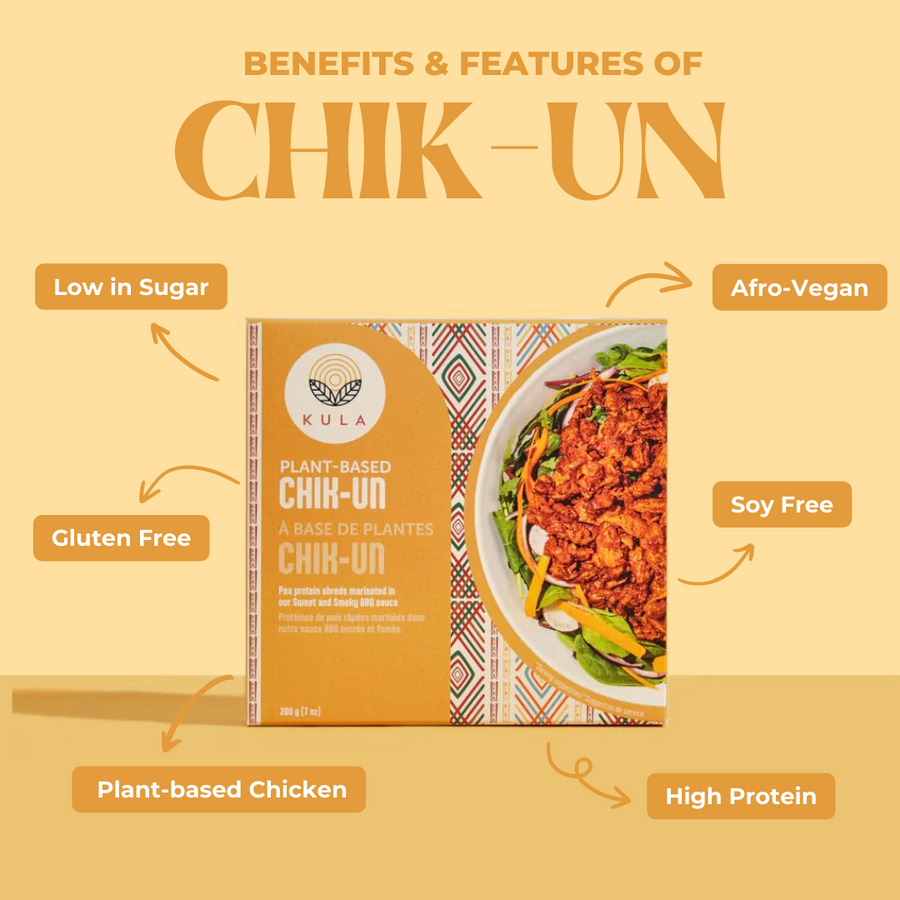Are These BBQ Sauces Really Plant-Based? We Investigated
Are These BBQ Sauces Really Plant-Based? We Investigated
Blog Article
All About Healthy Food: Advantages of Checking Out Plant Based Alternatives
The conversation bordering plant-based diets has actually gotten considerable interest in the last few years. Numerous individuals are discovering the possible health and wellness benefits, nutritional benefits, and ecological impacts connected with these nutritional selections. As people become more familiar with their food's impact on well-being and sustainability, questions emerge regarding the functionalities of adopting such a lifestyle. What details modifications can one expect, and just how might these options reshape not just personal health yet likewise the earth's future?
Comprehending Plant-Based Diets
Although lots of people associate plant-based diet regimens primarily with vegetarianism or veganism, these diet regimens can incorporate a wide variety of consuming patterns that focus on whole, minimally processed plant foods. Such diet regimens typically consist of fruits, vegetables, entire grains, seeds, legumes, and nuts, while removing or limiting animal items. This flexibility enables people to customize their dietary selections according to individual preferences and dietary demands. Some may embrace a largely plant-based diet while still sometimes consuming meat or milk, frequently described as a flexitarian strategy. The focus stays on integrating even more plant foods, which can lead to a diverse range of dishes and tastes. Understanding these different analyses of plant-based consuming is crucial for appreciating its ease of access and charm in modern food culture.
Wellness Benefits of Plant-Based Foods
The wellness benefits of plant-based foods are substantial, providing a nutrient density advantage that sustains general well-being. Research indicates that these foods can improve heart health and play a necessary duty in reliable weight monitoring. By including more plant-based options, individuals might boost their nutritional selections and advertise lasting wellness.
Nutrient Thickness Benefit
Nutrient density plays a vital function in the health and wellness benefits of plant-based foods, making them a compelling choice for those looking for a well balanced diet regimen. Plant-based foods, such as fruits, veggies, vegetables, nuts, and whole grains, are commonly abundant in necessary vitamins, minerals, and anti-oxidants while being lower in calories. This high nutrient density permits people to take in fewer calories while still meeting their dietary requirements. Furthermore, these foods are packed with nutritional fiber, advertising digestion health and wellness and aiding in weight monitoring. By integrating nutrient-dense plant-based choices, consumers can boost their general health, sustain their immune systems, and minimize the danger of chronic diseases. Ultimately, the nutrient thickness of plant-based foods highlights their importance in a health-conscious way of living.
Heart Wellness Enhancement

Weight Administration Support
Along with advertising heart health, a plant-based diet plan can substantially aid in weight administration. This nutritional approach stresses entire foods such as fruits, veggies, legumes, nuts, and entire grains, which are normally reduced in calories and higher in fiber compared to animal-based items. The high fiber content assists enhance satiety, lowering total calorie intake. Moreover, plant-based diet regimens are often rich in important nutrients while low in undesirable fats, making it simpler to keep a healthy and balanced weight. Sugar Free Sauces. Research study indicates that individuals that embrace a plant-based lifestyle tend to have lower body mass indexes (BMIs) and experience more effective weight reduction contrasted to those that take in meat-heavy diet plans. Embracing plant-based alternatives is a strategic selection for reliable weight management.
Nutritional Worth of Plant-Based Active Ingredients
Plant-based active ingredients are abundant in essential nutrients, supplying a varied variety of vitamins, minerals, and anti-oxidants that add to overall health and wellness. A comparison of protein resources exposes that while pet items are typically deemed premium, lots of plant-based options supply sufficient protein and various other beneficial compounds. Comprehending the dietary worth of these ingredients can help individuals make educated nutritional options.
Essential Nutrients in Plants
Nutrient-rich components found in plants provide a varied variety of necessary nutrients that contribute considerably to total wellness. These components are abundant in vitamins A, C, and K, which support immune feature, vision, and blood clotting, respectively. In addition, plants give crucial minerals such as potassium, calcium, and magnesium, critical for heart health and wellness, muscular tissue feature, and bone toughness. The presence of fiber in plant-based foods aids food digestion and advertises a healthy gut microbiome. Antioxidants, located generously in veggies and fruits, assistance combat oxidative stress and minimize inflammation. Additionally, several plant foods are reduced in calories yet high in nutrients, making them an outstanding choice for those looking for to preserve a healthy weight while ensuring perfect nutrient consumption.
Contrasting Protein Sources
Healthy protein resources vary substantially in their dietary accounts, with plant-based ingredients supplying special advantages. Unlike pet healthy proteins, which typically contain saturated fats and cholesterol, plant proteins tend to be lower in these harmful elements. Legumes, nuts, seeds, and whole grains are rich in crucial amino acids, fiber, vitamins, and minerals. Lentils give high protein material alongside substantial iron and folate, while quinoa is a total healthy protein, offering all nine important amino acids. In addition, plant-based proteins are often come with by antioxidants and phytochemicals that support general health. The change to plant-based healthy protein sources not just enhances nutritional intake yet likewise straightens with lasting nutritional practices, minimizing environmental effect and advertising long-lasting wellness advantages.
Ecological Impact of Plant-Based Eating
As understanding of environment change expands, numerous individuals are checking out lasting nutritional selections that can greatly reduce their ecological impact. Plant-based eating has actually become a significant factor to lowering greenhouse gas discharges, which are primarily connected with animals manufacturing. The farming of fruits, vegetables, grains, and beans generally needs less sources, such as water and land, compared to pet farming. In addition, plant-based diet plans can result in reduced deforestation, as much less land is needed for grazing animals or growing pet feed. By moving in the direction of plant-based alternatives, customers can sustain biodiversity and advertise much healthier ecosystems. Generally, accepting plant-based eating not this article just benefits personal health and wellness yet likewise represents an essential step toward environmental sustainability and preservation efforts.
Overcoming Common Misconceptions
While many people recognize the benefits of a plant-based diet regimen, a number of misunderstandings frequently prevent them from completely embracing this lifestyle. A common belief is that plant-based diet regimens do not have sufficient healthy protein; nevertheless, numerous plant resources, such as beans, nuts, and tofu, provide ample protein. Additionally, some presume that this diet regimen is costly, when in fact, staples like beans, rice, and seasonal veggies can be fairly budget friendly. One more mistaken belief is that plant-based eating is excessively limiting, whereas it actually offers a varied selection of foods and flavors. Finally, several stress that a plant-based diet may cause deficiencies, yet with correct preparation, people can get all necessary nutrients, consisting of minerals and vitamins, while taking pleasure in a variety of delicious dishes.
Tips for Transitioning to a Plant-Based Way of life
Making the shift to a plant-based way of living can be an improving experience, though it typically calls for some assistance to navigate the preliminary adjustments. First, people are motivated to start progressively, integrating even more fruits, veggies, vegetables, and entire grains right into their dishes while lowering meat and dairy intake. Meal planning is crucial; preparing a regular menu can assist alleviate the change and prevent final harmful selections. Checking out new dishes and cooking methods can also keep and boost the experience excitement about plant-based eating. Additionally, joining support system or neighborhoods can provide motivation and share beneficial tips. Ultimately, remaining informed about nutrition guarantees balanced meals, stopping deficiencies while fostering a healthy, satisfying plant-based way of life.
Delicious Plant-Based Dish Ideas
Exploring tasty plant-based meal concepts can influence people to embrace an extra nourishing diet regimen. One popular choice is a passionate quinoa salad, including cherry tomatoes, cucumber, and a tangy lemon-tahini dressing. One more fave is a full-flavored lentil stew, packed with carrots, celery, and aromatic natural herbs, ideal for a calming dinner. For morning meal, overnight oats made with almond milk, chia seeds, and covered with fresh berries give a nourishing start to the day. Additionally, a vivid veggie stir-fry with tofu and a variety of colorful veggies can be a quick yet pleasing dish. Velvety avocado toast on whole-grain bread, sprinkled with spices and seeds, offers a straightforward yet savory snack. These dishes display the selection and splendor of plant-based consuming.

Regularly Asked Concerns
Can a Plant-Based Diet Regimen Supply Enough Healthy Protein?
The question of whether a plant-based diet can supply sufficient protein is common. Many resources, consisting of legumes, nuts, seeds, and whole grains, can fulfill protein requires successfully, supporting a nourishing and balanced diet for people.
Are Plant-Based Diet Plans Suitable for Children?
The viability of plant-based diet plans for children depends on cautious preparation. Appropriate nutrients have to be guaranteed, consisting of minerals, vitamins, and healthy proteins. With appropriate support, such diet plans can sustain healthy development and growth in children.
Just how Do I Eat Out on a Plant-Based Diet?
Eating in restaurants on a plant-based diet involves seeking dining establishments with varied menus, requesting for alterations, and exploring vegan-friendly alternatives. Planning in advance and interacting dietary choices can enhance the eating experience while maintaining dietary selections.
What Are Common Allergens in Plant-Based Foods?
Common allergens in plant-based foods consist of soy, gluten, nuts, and seeds - Plant Based Beef. Individuals complying with a plant-based diet must understand these allergens and check out tags very carefully to prevent negative reactions and guarantee risk-free intake
Can Plant-Based Diets Aid With Weight Loss?
Research suggests that embracing a plant-based diet may assist in weight reduction as a result of its typically reduced calorie thickness and greater fiber web content. This mix can enhance satiation, helping people manage their caloric consumption efficiently. Numerous individuals associate plant-based diets mainly with vegetarianism or veganism, these diets can include a vast range of eating patterns that prioritize entire, minimally refined you can find out more plant foods. Nutrient density plays a necessary duty in the health and wellness advantages of plant-based foods, making them an engaging selection for those looking for that site a balanced diet plan. Plant-based diet plans have been revealed to noticeably enhance heart wellness, as they often consist of components that support cardio feature. In enhancement to promoting heart health and wellness, a plant-based diet can considerably aid in weight administration. A typical belief is that plant-based diet plans lack adequate protein; nevertheless, numerous plant resources, such as vegetables, nuts, and tofu, give adequate protein.
Report this page